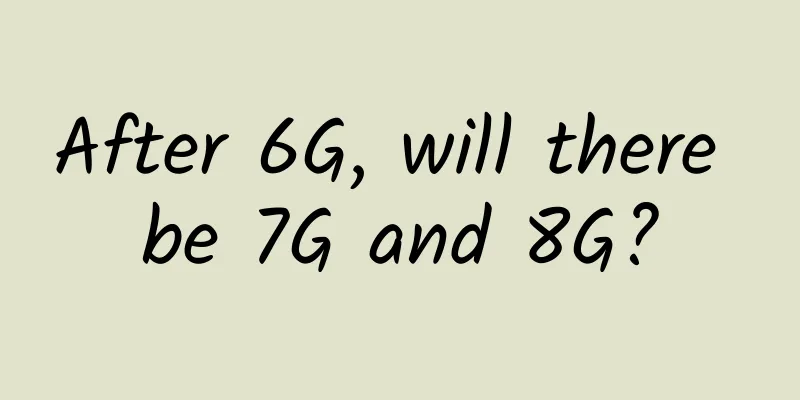If 2G and 3G networks are to be shut down, can users still use their mobile phones to surf the Internet and make calls normally?

|
Recently, the news that China Mobile's 3G base stations in Fuzhou were decommissioned and cancelled has caused heated discussions on the Internet. Some analysts said that this is China Mobile's large-scale 3G network withdrawal. Many netizens are worried about this: If 3G is withdrawn, can we still surf the Internet happily? Will there be no signal everywhere? Don't worry, let's see what's going on!
The three major operators' 2G and 3G network frequency reduction Recently, there was news that the Fuzhou Radio Management Bureau sent a letter to Fuzhou Mobile, "We have received your report on the application for cancellation of TD-SCDMA base stations. After research, we agree to cancel 6,535 TD-SCDMA base stations that your unit has stopped using, seal the TD-SCDMA base station data in the database and revoke the originally issued radio station license." TD-SCDMA base stations are China Mobile's 3G network base stations. As a result, China Mobile's 3G network withdrawal has sparked heated discussions. A relevant person from China Mobile told Chinanews.com that "there is no more information to disclose." An industry insider told China News Service that in fact, the three major operators have been working on reducing the frequency of 2G and 3G networks, but their focus is different. It is reported that China Mobile is reducing the frequency of its 3G network (reducing it until all 3G base stations disappear, i.e., withdrawing 3G from the network), while China Telecom and China Unicom are reducing the frequency of their 2G and 3G networks. Does it affect the normal use of users? According to data from the Ministry of Industry and Information Technology, by the end of 2018, the total number of mobile phones in China reached 1.57 billion, of which the total number of 4G users reached 1.17 billion. In other words, China still has 400 million 2G and 3G users. Will the withdrawal of 2G and 3G networks affect these users? Independent telecom analyst Fu Liang believes that the network frequency reduction of the three major operators is a gradual process, and 2G users do not need to worry too much. China Unicom also said earlier that frequency reduction is not a network shutdown, but a gradual "slimming down" process. In addition, as mentioned above, the three major operators have their own focus in reducing network frequency. As we all know, China Mobile still has a large number of 2G users, but it is now reducing the frequency of its 3G network. According to the latest data released by China Mobile, as of the end of January, China Mobile had a total of 927 million users, including 717 million 4G users. This means that China Mobile still has 210 million 2G and 3G users. Xiang Ligang, a communications industry expert, said that it is normal for old technologies to be phased out. Why hasn't 2G GSM been phased out yet? Because the main function of GSM is to make phone calls. Many phone services today still use 2G networks, and if they are phased out, calls won't be able to be made. "In the future, a basic pattern will gradually emerge in which both 3G and 4G will be phased out, but 2G will be difficult to phase out." Why quit the Internet? As for why they want to withdraw from the network, Xiang Ligang said that TD-SCDMA, like other 3G and 4G technologies, has the main function of data services, but with 3G technology, one base station only supports about 20M of traffic, and its capacity is very weak. In addition, the withdrawal of the network is for efficient use of spectrum. In an interview with China News Service, Fu Liang said that the original 2G network occupied some frequency bands, some of which are scarce and can be said to be precious resources. After being reused, they can be used in the construction of 4G networks, which is conducive to improving network quality and wide-area network coverage. The operators themselves have also admitted this. In April 2018, China Unicom issued an announcement stating that it was orderly advancing the work of reducing the frequency of 2G networks. At that time, China Unicom stated that the bandwidth resources would be freed up for higher-level 4G networks and deployments. Xiang Ligang also said that if China Mobile can clear out the 3G spectrum and use it for 5G, it will greatly improve spectrum utilization and efficiency, and will also be very beneficial for 5G network construction. Regarding 5G frequency bands, in December 2018, the Ministry of Industry and Information Technology issued 5G low-band experimental frequency use licenses to the three major operators. Among them, China Telecom and China Unicom obtained 3500MHz frequency band experimental frequency use licenses, and China Mobile obtained 2600MHz and 4900MHz frequency band experimental frequency use licenses. Subsequently, the Ministry of Industry and Information Technology also issued the "Interference Coordination Management Measures for Fifth-Generation Mobile Communication Base Stations and Satellite Earth Stations and Other Radio Stations in the 3000-5000MHz Frequency Band". It can be seen how precious the frequency band is. No wonder operators want to re-cultivate the frequency band. So, what kind of user are you? Will you try 5G? |
<<: Compared with IPv4, IPv6 is more than just an increase in address length
Recommend
What is 6G and when can we expect it?
Since 5G networks are still being deployed around...
Ubuntu 18.04 changes the IP address
My memory is getting worse and worse, just record...
China Academy of Information and Communications Technology interprets the "Notice on Promoting the Accelerated Development of 5G"
In order to thoroughly implement the spirit of th...
Huawei Shanghai 5G+XR Cloud Innovation Center goes online to accelerate the activation of Shanghai's 5G innovation value
Recently, Huawei's 5G+XR Cloud Industry Summi...
New 5G transmission specification helps support demanding 5G applications
The Broadband Forum has published its technical r...
WebSocket in real-time chat room
To learn more about open source, please visit: ...
RAKsmart server flash sale starts from $30/month, cluster server starts from $142/month, US/Japan/Korea/Hong Kong data centers
In addition to the flash sales on VPS and cloud s...
Standard Internet site update, promotional cloud server starting from 188 yuan/year
New Year, New Atmosphere. Pesyun Standard Interco...
Huawei Chairman Liang Hua: Focus on ICT infrastructure platforms and create a fertile soil for ecological innovation
On April 22, Huawei Chairman Liang Hua shared his...
Wu Hequan, Academician of the Chinese Academy of Engineering: IPv6 will become the carrier platform of the new generation of IT and will develop in parallel with computing power network
[[432879]] The 2021 China Mobile Global Partner C...
The sooner you know, the sooner you will benefit. What exactly is NaaS, which is about to become a trend?
X-as-a-Service offerings have been around for mor...
Token: How to reduce the traffic pressure of user identity authentication?
Many websites usually use the Session method to i...
WiFi beginners guide: 4 things you need to know
Gone are the days of firing up our computers, plu...
Transmission technology has made a great leap forward! The IoT market will exceed one trillion this year
Multiple IoT transmission technologies have been ...
Three steps to improve data center efficiency
Recently, Maggie Shillington, a cloud computing a...









